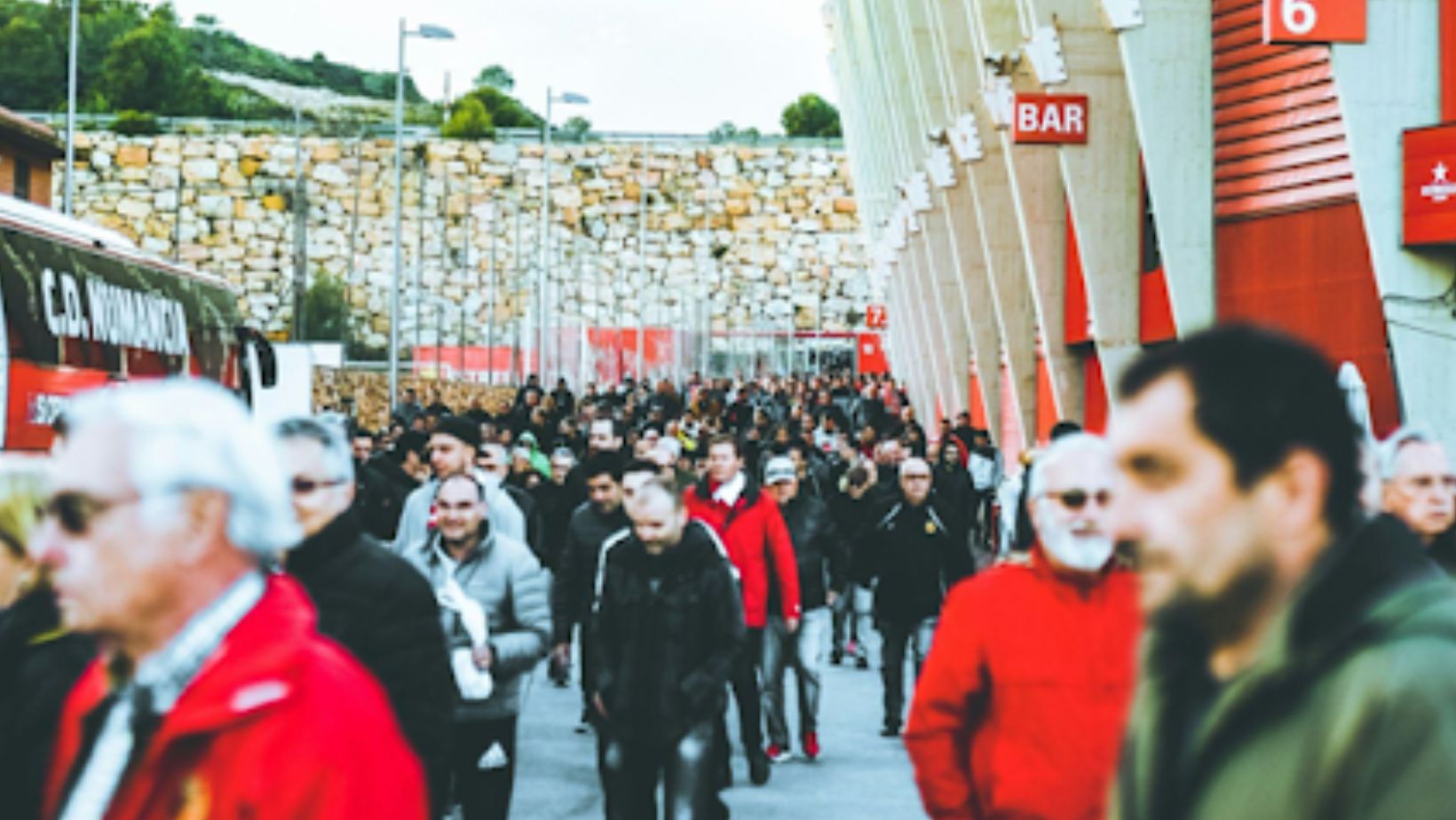Making the most out of an experience of watching sports events unfold in real time is something that is about the pacing of your feelings. It’s about taking in the atmosphere of a game. It may bring you excitement, it may bring you anxiety, but it will certainly create a memory that you are likely to cherish, especially if it’s memorable.
There’s nothing in sports as valuable as going through the emotions of being in a stadium, or an arena if it’s indoors. It’s a matter of recognizing that each move that you see on the field is something that unfolds before your very eyes, but without the tertiary element that is the screen.
Yes, television/streaming bridges the matters of time and distance that we cannot overcome as humans. However, the lack of said distance brings a level of experience that one can only hope to enjoy at least once in their life. This is why those who have a passion for sports, even for a team, have a certain level of motivation when it comes to their desire to be season-long ticket holders.
At the same time, a stadium is a public place that requires a certain level of social adaption. There are cases when you are part of the community that creates the stadium atmosphere, and others where you are a glorified guest, serving as an outsider who exercises their right to attend a game and live it for themselves, live.
In this article, we will talk about what it means to be a traveler who attends a match, but from the perspective of someone who complies with norms, etiquette, and respectful behavior. It’s not rocket science because it’s all about being a human with amenable traits and a conduit. We will showcase what it means to be a respectful traveler at an away game.
The Principle of Traveling
You will not be home in any way, shape, or form. You are a visitor. A guest. What does it mean?
It means that you are to be respectful of being in someone else’s home. Yes, there are plenty of cases when traveling fans have to actually go somewhere far from their home in order to root for the home team—such is the way of fan bases. However, there would still be a way in which such a fan is actually in their home, which is the welcoming place that belongs to their team.
When you are attending an away game for your team, it is not your home. There are cases when, for some reason, you live in a city whose team is not the one you root for, making it a particularly odd example. Even in this case, you are not sharing the home team energy of those around you who root for the home team. You’re not an intruder, but you’re not a homer.
This is why you need to understand that the matter of traveling somewhere is a matter of respect. That community has its own unwritten rules, its role that dictates powerful context, and why you ought to be careful about being adaptable to your surroundings. You are making your way through something unfamiliar, especially if you’re a visitor in the dwelling area of that stadium.
As a matter of principle, you should understand that you have a duty to open up your heart to things that may not be familiar, or even comfortable, to you. It’s a matter of recognizing that you may need help to navigate certain streets, and you may need to realize that your attire, your manner of speaking, and your expectations are not in tune with what you’re used to.
You are a stranger, and you should let the home community make you feel welcome rather than forcing your way into familiarity.

Respectful Behavior in Stadiums: Common Sense
If we are to talk about etiquette, we need to talk about respect and common sense. The former is about your sensibilities and empathy, not just about the matter of how you interact with an environment. The latter is about following social norms that allow you to blend in seamlessly and partake in the normal structuring of any civilized environment.
Naturally, having common sense requires the idea of having at least a rudimentary level of education, which is not a given. However, if you can afford to buy tickets to a high-profile sports event, you probably have the resources to know what constitutes common sense, which is what should give you the impulse to be careful about your actions.
Moreover, the idea of respect is about understanding the context of where you’re traveling. You’ll quickly observe if the people are more reserved or boisterous. You’ll realize quite quickly that you may be in a place where humor is something that requires careful wording, not spur-of-the-moment things that go into the air.
This means that you:
- Should not even think about the idea of bringing indecent, discriminatory, or offensive visual props to a stadium, such as pancarts or banners.
- Do not bring pyrotechnical material, which may pose a level of danger to those around you.
- If you want to carry something, ensure that your bag and its contents comply with the league’s regulations for that stadium. For example, the MLS fan code provides strict guidelines for all types of baggage.
- Shift your priorities toward an attitude of asking nicely and not presuming that everyone knows exactly what you’re after.
- Remember that some stadium codes, such as the lack of alcohol consumption in UK stadiums, should prohibit you from trying to override such regulations.
- Please remember that coming to the game intoxicated is a problem that can turn into a matter of behavioral issues. Nobody says that you shouldn’t have a little fun beforehand, but downing drink after drink and vomiting all over those around you is not a good thing to do.
Doing Your Homework is Crucial
This should be a standard principle. SofaScore gives you the rundown on how association football metrics determine player performance. Review platforms for stadiums tell you about the atmosphere and facilities there. BetOnValue tells you what the betting opportunities for that event are, if you’re looking into this part of the experience.
Overall, you have plenty of opportunities to be an informed attendee, which is why you should know what the environment entails.
For example, the idea of feeling relatively comfortable about visiting an unfamiliar place should prompt you to do your research regarding aspects like logistics. Think about lodging near the stadium, transportation there, the issue of parking, how busy that area will be after the game, and all the things that go into such an experience.

Cultural Elements
Lastly, remember what kind of country, province, state, or city you are in. Aspects like religion, certain practices like alcohol consumption, or other matters of behavior can impact you and the environment you’re in.
For this reason, cultural homework is very important. Language is the same kind of thing. Some countries have citizens who speak English very broadly, while others will require knowing a word or two in the native tongue, or using some form of translation app. It requires you to have a very careful rapport with the environment around you!
Conclusion
The only thing to remember here is that each community has its own ecosystem, and a stadium within that community has its own rules. If you want to have an enjoyable experience, be respectful and maintain your upholding of the etiquette!


 By
By 





